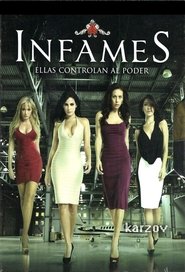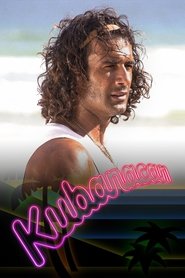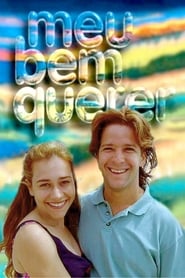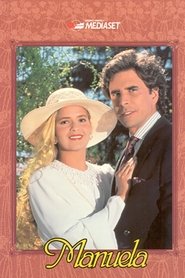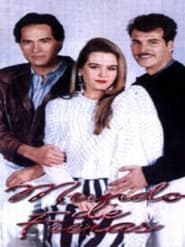Best Soap TV Series - Page 9
-
Emmerdale
1972
star 4.1The lives of several families in the Yorkshire Dales revolve around a farm and the nearby village. With murders, affairs, lies, deceit, laughter and tears, it's all there in the village. -
Rebelde
2004
star 8.4Six teenagers with different lives and personalities attend a prominent private school with only one thing in common: their vocation and passion for music. -
Bandini
2009
star 10Bandini was an Indian soap opera produced by Ekta Kapoor of Balaji Telefilms. The show aired Monday to Friday evenings. The show is the longest running program of Imagine TV at 520 episodes. It starred Ronit Roy and Aasiya Kazi and was set against the backdrop of Gujarat in Dharampur a village near Surat in Gujarat. The show premiered on January 19, 2009 on NDTV Imagine. -
Kubanacan
2003
star 6.6The story begins in 1951 in Kubanacan, a small Caribbean island country known as a"banana republic", both for its prime export and its economic problems. After the death of the current president, General Carlos Camacho imposes a coup d'état and establishes a dictatorial regime. In addition, the new ruler marries the wife of her predecessor, Mercedes, first lady loved by the people for her help to the poor and with whom she had an affair for years. In the village of Santiago, a mysterious man falls from the sky during a storm with a chest shot, being saved by the fishermen and cared for by Marisol. Without memory, Esteban falls in love with the girl and disputes his heart with her husband, Enrico, who leaves and lets his ex-wife live with the new love, who takes over her two children. Seven years later, in 1958, Marisol meets Camacho, who convinces her to leave and live as his mistress, claiming she would never get out of poverty in the village. -
Taiwan Tornado
2004
Taiwan Tornado
2004
Chi-Chung Huang is the second son of the Huang family, which owns Taiwan Chao-Lian Group. Chi-Chung and his older brother, Chi-Long Huang, bribe the prosecutor for a death penalty case that his family is involved in. However, the prosecutor changes his mind about the matter. Chi-Chung leads his men to confront the prosecutor, who later falls off an elevated expressway and dies. To lay low for a while, Chi-Chung accepts his brother's arrangement and goes into hiding in the southern region of Taiwan. However, after he arrives there, he is controlled by a crime syndicate. After he is drugged and becomes hardly conscious, he inadvertently rapes Chia-Yi, who is a nice good girl. After the rape, Chia-Yi swears to get Chi-Chung to face up the legal consequences; later, she finds she is impregnated by Chi-Chung, and this strengthens her will to fight a battle between the rich (Chi-Chung) and the poor (herself). As a storm is quietly approaching, who will turn out to be the winner? -
Meu Bem Querer
1998
star 6Meu Bem Querer is a Brazilian telenovela produced and aired by Rede Globo. Written by Ricardo Linhares, with the collaboration of Leonor Bassères, Nelson Nadotti, Maria Elisa Berredo and Glória Barretoentre, monitoring text by Aguinaldo Silva, direction of Luís Henrique Rios, João Camargo and Alexandre Avancini, direction general of Roberto Naar and nucleus of Marcos Paulo and transmitted by August 24, 1998 and January 20, 1999, totaling 179 episodes. -
E Street
1989
star 6An Australian television soap opera, set in a tough fictional inner-city district called Westside. The stories revolve around the local community there. Created by Forrest Redlich and produced by Network Ten from 24 January 1989 to 13 May 1993. -
Chiquititas
2013
star 8.4Based on the original version of same name created by Cris Morena, the series tells the story of a group of orphans living in a manor, known as Raio de Luz, struggling and being guided by a young woman, Carol, that assumes a maternal figure for them. Their experiences such as discovering first love, deceptions, loneliness and friendship, as well as adventures in fantasy, are depicted throughout the series. The narrative is followed by musical themes and videoclips. -
O Sétimo Guardião
2018
star 3.4At first glance, Serro Azul may seem like just another typical inland town, quiet and surrounded by mountains, where technological advances such as internet and cell phones have not yet arrived. A place where anyone who passes does not pay much attention, not knowing what is missing, after all, a city that is near Greenville and Tubiacanga could not fail to have its peculiarities. The main one is a source with curative and rejuvenating properties, which is the outermost part of a gigantic aquifer, a huge reservoir of what is becoming the most precious possession of the Earth: water. This source is protected by seven guardians whose mission is to ensure that this wealth does not reach the wrong hands. -
Capitol
1982
star 5.7Capitol is an American soap opera which aired on CBS from March 29, 1982 to March 20, 1987 for 1,270 episodes. As its name suggests, the storyline usually revolves around the political intrigues of people whose lives intertwined in Washington, D.C. -
Fascínios
2007
Fascínios
2007
-
Tiny Angels
1995
star 5.1The series focuses about orphans living in a manor, known as Rincón de Luz, where they're guided by a young woman that represents a maternal figure for them.





